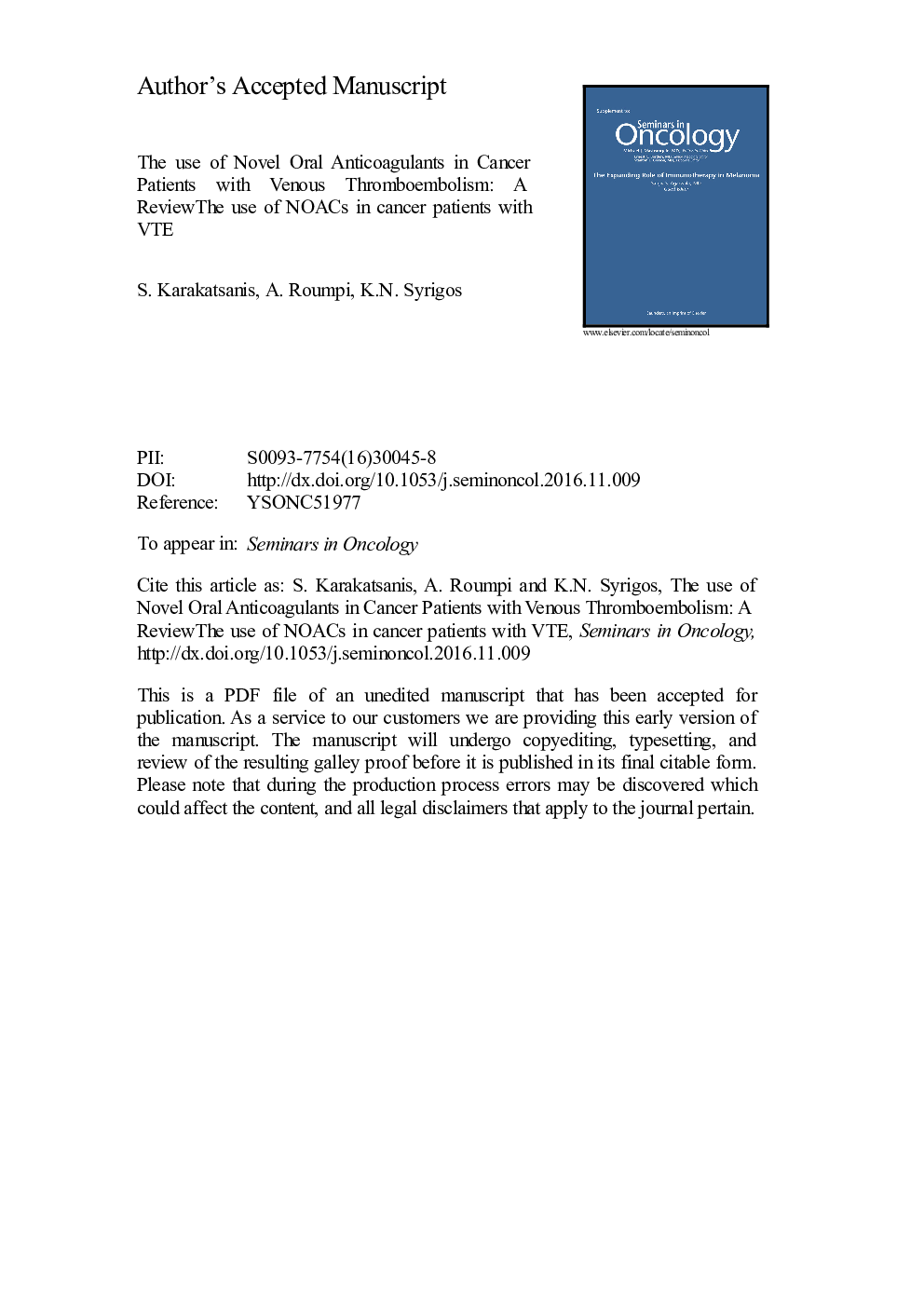| Article ID | Journal | Published Year | Pages | File Type |
|---|---|---|---|---|
| 5530273 | Seminars in Oncology | 2016 | 28 Pages |
Abstract
Venous thromboembolism (VTE) is not uncommon among patients with cancer and is one of the major causes of mortality and morbidity. Treatment with low-molecular-weight heparin (LMWH) is effective, yet accompanied by the need for daily administration of injections for a prolonged time and (even rarely) thrombocytopenia. The discovery of novel oral anticoagulants (NOACs) was based on an effort to improve the pharmacodynamic and pharmacokinetic properties of previous generation anticoagulants while maintaining efficacy without the need for daily subcutaneous administration and frequent laboratory monitoring. The MEDLINE database was searched using PubMed in order to find relevant studies on the use of NOACs in patients with active malignancy and VTE. Furthermore, critical reading of references in recently published studies and reviews was performed. NOACs appear to be at least equivalent to coumarin anticoagulants in terms of efficacy and safety and their administration is easier, but data specifically concerning patients with active malignancy or comparing them to LMWH in this specific clinical setting are not yet available. Furthermore, patients with active cancer present several unique characteristics and drawing conclusions from studies involving other patient groups may not be appropriate. Specific studies in cancer patients are still pending that will help decide if NOACs will be the drugs of choice in this group of patients in need of efficient and simple to administer treatments.
Keywords
Related Topics
Life Sciences
Biochemistry, Genetics and Molecular Biology
Cancer Research
Authors
Stamatis J. Karakatsanis, Aikaterini Roumpi, Konstantinos N. Syrigos,
